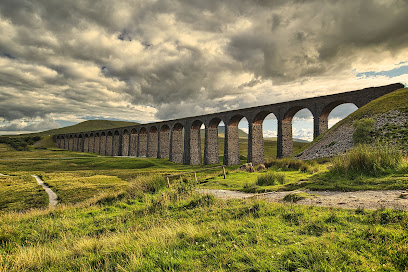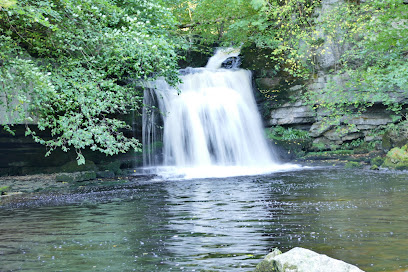
The Timeless Beauty of Yorkshire Dales National Park
Yorkshire Dales National Park is a stunning sanctuary of rolling hills, deep valleys, and charming villages. It is located in the heart of northern England and offers a perfect blend of natural beauty and rich cultural heritage. The park covers over 2,000 square kilometers, making it a haven for outdoor enthusiasts and history buffs alike. The landscape is a tapestry of lush green pastures, dramatic limestone cliffs, and serene rivers. Visitors can explore over 2,500 kilometers of public rights of way, making it a paradise for walkers, cyclists, and nature lovers. The park is home to iconic features like the Three Peaks of Pen-y-ghent, Ingleborough, and Whernside, which offer challenging yet rewarding hikes. Beyond its natural splendor, the Yorkshire Dales is steeped in history. Ancient stone barns and drystone walls dot the countryside, while picturesque villages like Hawes and Grassington provide a glimpse into traditional rural life. The park also boasts fascinating historical sites such as Bolton Castle and Fountains Abbey, a UNESCO World Heritage site. Wildlife enthusiasts will be delighted with the diverse fauna and flora. The park is home to rare species like the red squirrel and the peregrine falcon. Spring and summer bring a burst of wildflowers, transforming the meadows into a colorful spectacle. Whether you're seeking adventure, tranquility, or a journey back in time, the Yorkshire Dales National Park offers something for everyone. Its breathtaking scenery and warm local hospitality ensure an unforgettable experience.
Local tips in Yorkshire Dales National Park
- Visit in spring or summer to see the meadows in full bloom and enjoy milder weather.
- Wear sturdy walking boots as the terrain can be uneven and muddy, especially after rain.
- Check the weather forecast before heading out on long hikes, as conditions can change quickly.
- Don't miss the local markets in villages like Hawes, where you can buy fresh produce and unique crafts.
- If you're visiting popular sites like Malham Cove, try to arrive early to avoid crowds.
The Timeless Beauty of Yorkshire Dales National Park
Yorkshire Dales National Park is a stunning sanctuary of rolling hills, deep valleys, and charming villages. It is located in the heart of northern England and offers a perfect blend of natural beauty and rich cultural heritage. The park covers over 2,000 square kilometers, making it a haven for outdoor enthusiasts and history buffs alike. The landscape is a tapestry of lush green pastures, dramatic limestone cliffs, and serene rivers. Visitors can explore over 2,500 kilometers of public rights of way, making it a paradise for walkers, cyclists, and nature lovers. The park is home to iconic features like the Three Peaks of Pen-y-ghent, Ingleborough, and Whernside, which offer challenging yet rewarding hikes. Beyond its natural splendor, the Yorkshire Dales is steeped in history. Ancient stone barns and drystone walls dot the countryside, while picturesque villages like Hawes and Grassington provide a glimpse into traditional rural life. The park also boasts fascinating historical sites such as Bolton Castle and Fountains Abbey, a UNESCO World Heritage site. Wildlife enthusiasts will be delighted with the diverse fauna and flora. The park is home to rare species like the red squirrel and the peregrine falcon. Spring and summer bring a burst of wildflowers, transforming the meadows into a colorful spectacle. Whether you're seeking adventure, tranquility, or a journey back in time, the Yorkshire Dales National Park offers something for everyone. Its breathtaking scenery and warm local hospitality ensure an unforgettable experience.
When is the best time to go to Yorkshire Dales National Park?
Unmissable attractions to see
Yorkshire Dales National Park
Explore the breathtaking limestone valleys, rugged peaks, and dark skies of Yorkshire’s iconic upland national park.
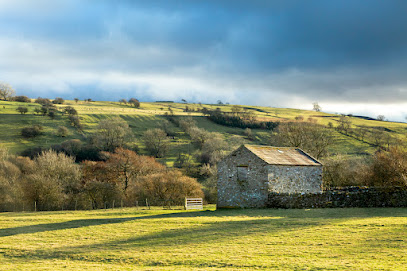
Ingleton Waterfalls Trail
A stunning 7km circular walk through ancient woodland and limestone gorges, where eight dramatic waterfalls cascade down the River Twiss and River Doe in the Yorkshire Dales.
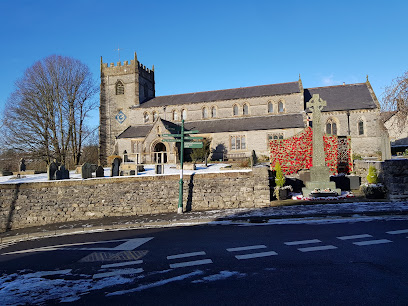
Aysgarth Falls Yorkshire Dales National Park Visitor Centre
Explore the breathtaking three-tiered Aysgarth Falls and enjoy the welcoming National Park Visitor Centre with café, trails, and accessible facilities.
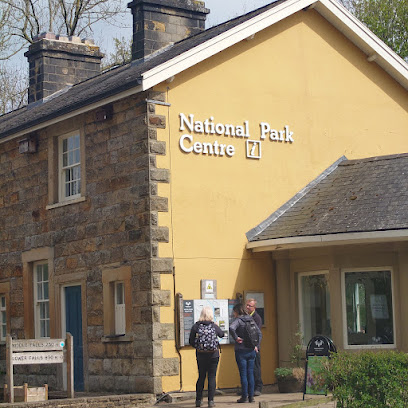
National Trust - Brimham Rocks
Explore Yorkshire’s ancient sculpted rock formations and vibrant heather moorland at Brimham Rocks, a natural wonder cared for by the National Trust.
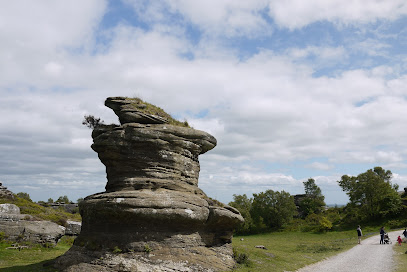
Malham Cove
Explore Malham Cove’s towering limestone cliff and unique pavement, a breathtaking Ice Age amphitheatre in the heart of Yorkshire Dales.
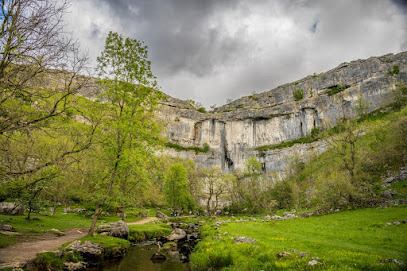
Lancaster Castle
Explore Lancaster Castle’s millennium of history through immersive tours of its medieval courts, dungeons, and storied walls atop Castle Hill.
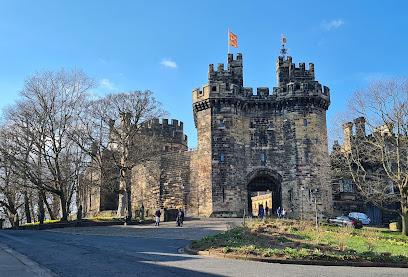
The Forbidden Corner
Explore a whimsical labyrinth of tunnels, quirky sculptures, and secret gardens in the heart of the Yorkshire Dales.
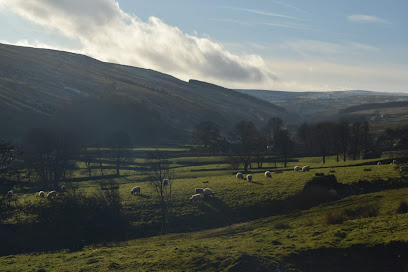
Skipton Castle
Step into over 900 years of history at Skipton Castle, a beautifully preserved medieval fortress overlooking the vibrant market town of Skipton.
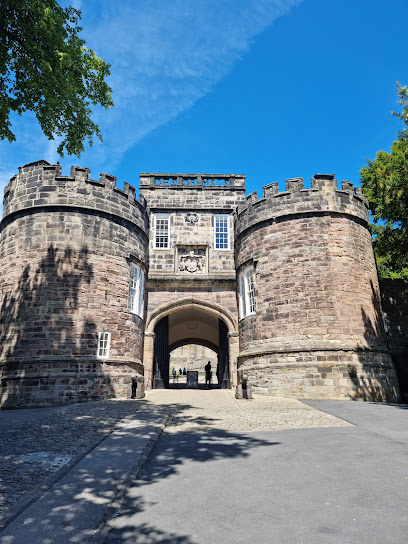
Tan Hill Inn
Experience Britain’s highest pub with historic charm, hearty local fare, and breathtaking Yorkshire Dales views at The World Famous Tan Hill Inn.

Nidderdale National Landscape
Explore Nidderdale National Landscape’s rich mix of water, wildlife, heritage, and outdoor adventure across 233 square miles of stunning North Yorkshire scenery.
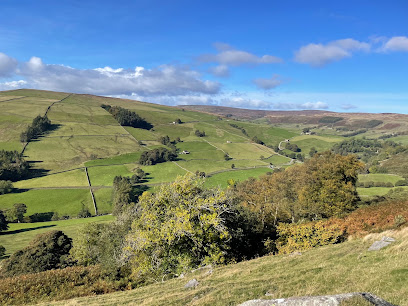
White Scar Cave
Explore England’s longest show cave with stunning limestone formations, underground waterfalls, and a mile of natural subterranean wonder.
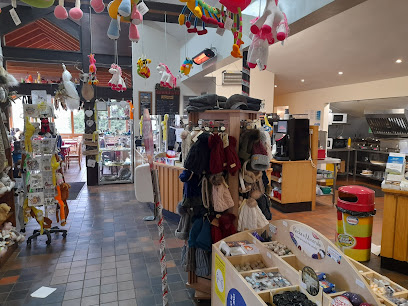
Janet's Foss
A serene waterfall nestled in enchanted woodland, where folklore and natural beauty meet in the heart of the Yorkshire Dales.
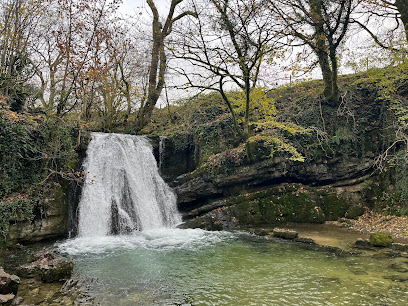
Richmond Castle
A commanding Norman fortress above the River Swale, with a towering keep, peaceful garden and a powerful story from the Conquest to the First World War.
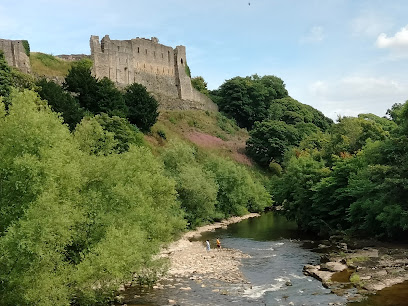
Gordale Scar
Explore the breathtaking limestone gorge of Gordale Scar with towering cliffs, cascading waterfalls, and rich natural and cultural heritage.
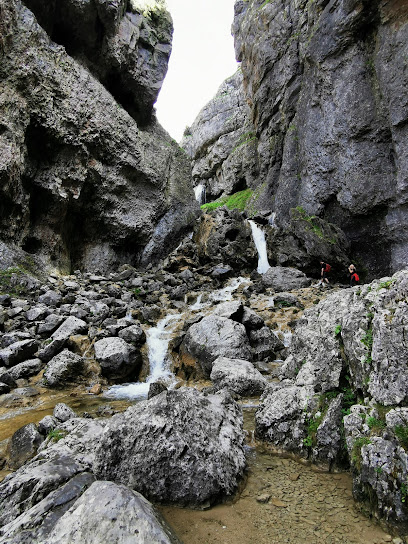
Bolton Castle
Explore Bolton Castle, a stunning 14th-century fortress in North Yorkshire, famed for its medieval architecture and Mary, Queen of Scots’ imprisonment.
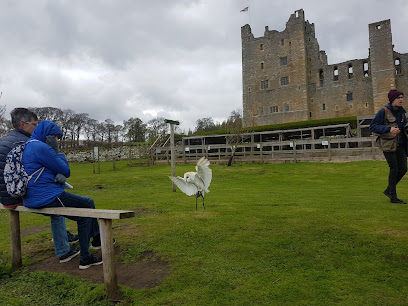
Essential places to dine
Tan Hill Inn
Britain’s highest pub, The World Famous Tan Hill Inn offers historic charm, hearty local fare, and stunning Yorkshire Dales views in a remote, atmospheric setting.

The Lister Arms
Historic 17th-century coaching inn in Malham offering cozy rooms, hearty local cuisine, and a welcoming pub atmosphere in the heart of the Yorkshire Dales.
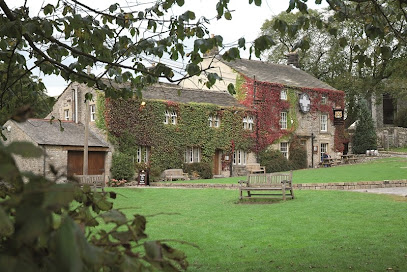
Craven Arms Pub & Cruck Barn
Experience authentic Yorkshire Dales hospitality with hearty food, local ales, and rustic charm at Craven Arms Pub & Cruck Barn.
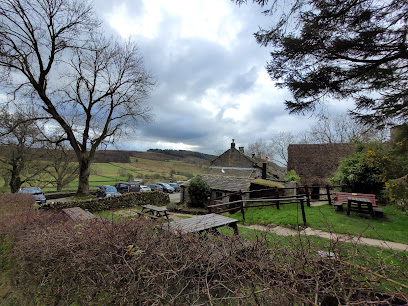
The White Hart Inn, Hawes
A cozy, traditional Yorkshire pub and inn in Hawes offering hearty local fare, comfortable rooms, and warm Dales hospitality.
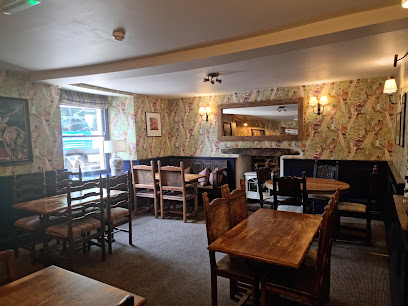
The Bolton Arms
Historic Yorkshire pub offering hearty home-cooked meals, local ales, and a warm, dog-friendly atmosphere in the heart of Leyburn.
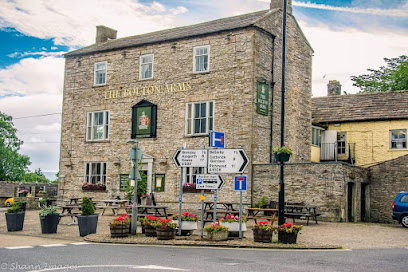
The Old Hall Inn
Historic charm and hearty Yorkshire hospitality await at The Old Hall Inn in the heart of Grassington village.
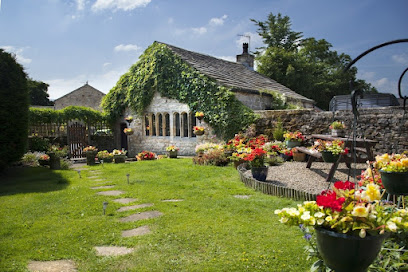
The Crown Hawes
A traditional Yorkshire Dales pub offering hearty meals, local ales, and warm hospitality in the heart of Hawes Market Place.
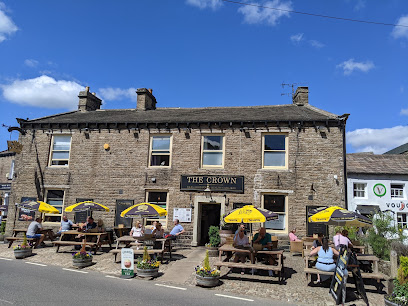
The Blue Lion Inn, Pub and Restaurant with Accommodation
Quintessential Yorkshire Dales inn blending rustic charm, hearty cuisine, and cozy accommodation in the heart of East Witton village.
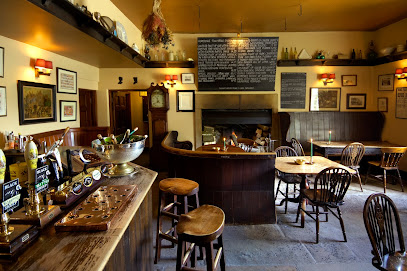
The Secret Garden Bistro
A pioneering plant-based bistro in Malham offering innovative, sustainable dishes in a serene Yorkshire Dales setting.
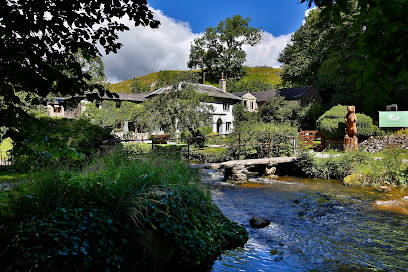
The Saddle Room Restaurant
Experience refined English dining and boutique comfort in the tranquil countryside of Leyburn’s historic Tupgill Park Stables.
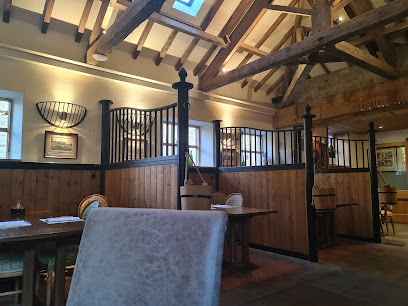
Stone House Hotel
Elegant Edwardian country house hotel offering scenic Yorkshire Dales views, refined dining, and warm hospitality near Hawes.
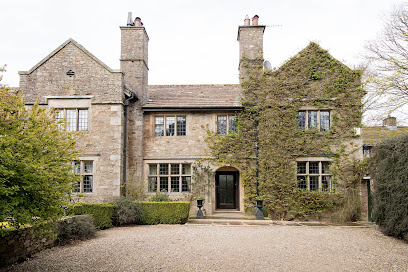
Yorebridge House
Experience refined luxury and serene beauty at Yorebridge House, a boutique 5-star retreat in the heart of the Yorkshire Dales.
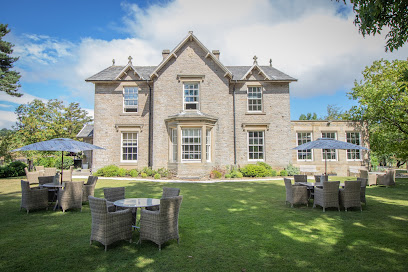
The Foresters Arms
A welcoming community pub in picturesque Carlton-in-Coverdale, blending traditional charm with quality food and local spirit.

The Willow Restaurant & B&B
A cozy British bed and breakfast with a celebrated restaurant, nestled in the scenic Yorkshire Dales market town of Pateley Bridge.
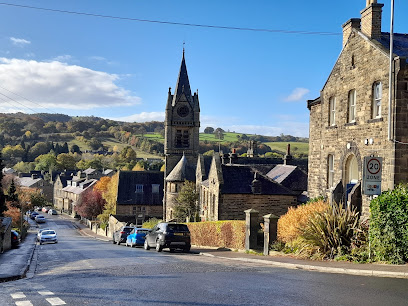
Sycamore Restaurant
Authentic British dining with rustic charm in the scenic village of Bainbridge, celebrating local flavors and warm hospitality.

Markets, malls and hidden boutiques
The Great Yorkshire Shop - Local gifts and souvenirs from Leeds & Yorkshire
Discover authentic Yorkshire gifts and souvenirs in a historic Victorian setting at The Great Yorkshire Shop in Leeds Corn Exchange.
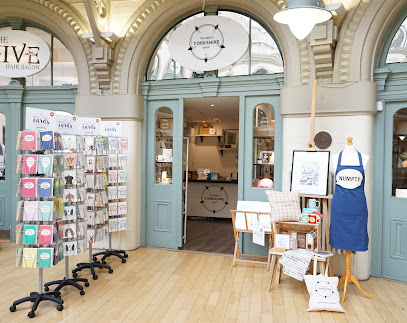
The Yorkshire Hive
Boutique shopping, diverse dining, and family fun beside Yorkshire Wildlife Park’s wild adventures.
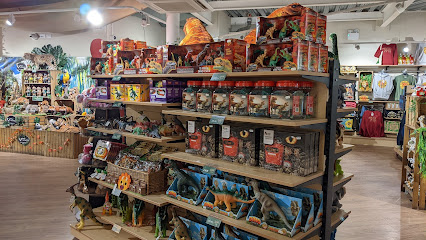
Carnforth Bookshop
Discover Carnforth Bookshop, a family-run independent haven of books, gifts, and local heritage in the heart of historic Lancashire.
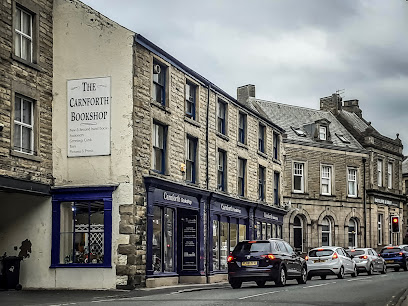
C&K
A charming independent lifestyle store and café in Settle’s Market Place, blending boutique shopping with local flavors and welcoming ambiance.
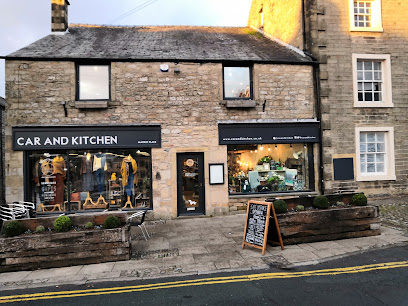
Grove Bookshop
A warm, independent bookshop in Ilkley’s heart, perfect for browsing new releases, children’s books, travel guides and local events.
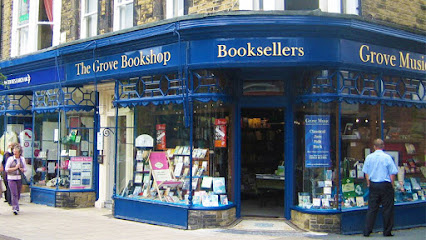
The Mulberry Bush and Yorkshire Sheepskins
A charming Yorkshire gift shop in Hawes offering unique sheepskins, local crafts, and a warm, traditional welcome.
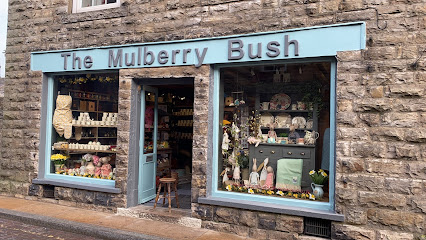
Dent Stores B&B
Historic Dent village B&B blending traditional charm with modern comfort and a top-rated breakfast in the heart of the Yorkshire Dales.

The Walking Shop
Your trusted outdoor gear specialist in Leyburn, offering expert advice and quality equipment for Yorkshire Dales adventures.
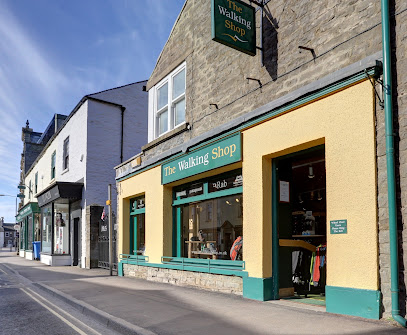
The Book Lounge
Discover a cozy haven of books, puzzles, and community spirit in the heart of Kirkby Lonsdale’s historic Main Street.
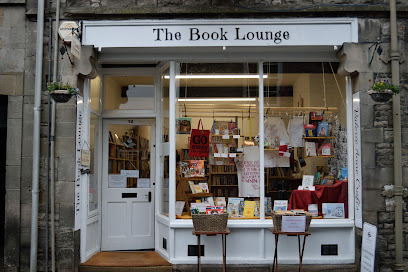
Hillside Toys -Farm Models & Toys
Discover a nostalgic world of farm models and classic toys at Hillside Toys in Ingleton, where agricultural heritage comes to life.
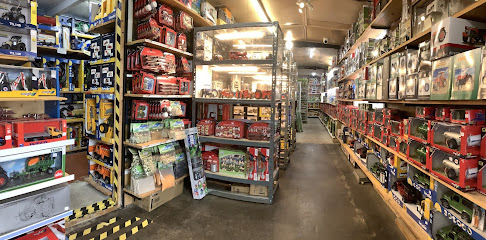
Swaledale Woollens
Discover authentic, handmade woollen knitwear crafted by local artisans in the heart of the Yorkshire Dales at Swaledale Woollens.
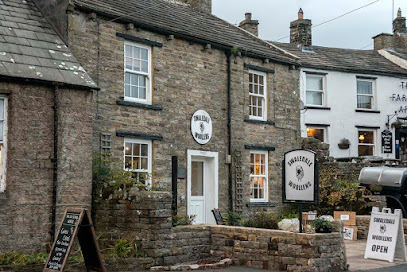
Essential bars & hidden hideouts
The Buck Inn Malham
A rustic, welcoming pub and inn in Malham offering hearty fare and cozy rooms amid the stunning Yorkshire Dales landscape.
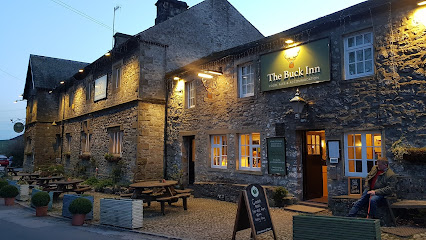
Aysgarth Falls Hotel & Restaurant
Charming hotel with stunning Yorkshire Dales views, fine dining, and cozy rooms near the iconic Aysgarth Falls.

The Green Dragon Inn
Historic Yorkshire coaching inn with cozy fires, hearty pub fare, and scenic Dales setting near Hardraw Force waterfall.
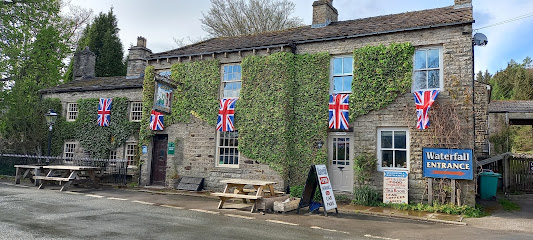
The White Hart Inn, Hawes
Discover the heart of Yorkshire hospitality at The White Hart Inn, a charming pub and restaurant in Hawes with delicious food and cozy accommodations.

The Gamekeeper's Inn
A charming countryside inn blending rustic hospitality, comfortable stays, and delicious local cuisine in the heart of the Yorkshire Dales.
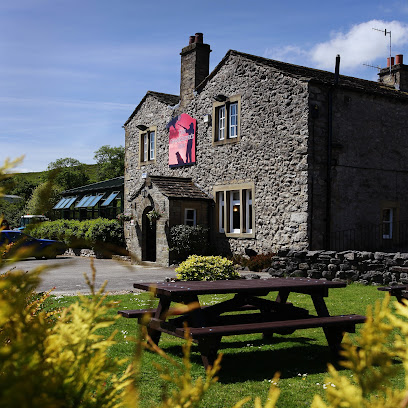
The Blue Bell Inn
Historic 17th-century inn offering cozy rooms, hearty local fare, and a welcoming atmosphere in scenic Kettlewell, Yorkshire Dales.

The Crown Hawes
A welcoming Yorkshire Dales pub blending traditional charm with Mediterranean flavors and cozy hospitality in Hawes Market Place.
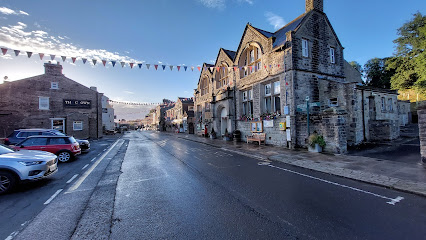
The Queens Arms
Historic 17th-century Yorkshire pub in Litton offering award-winning local cuisine, cozy ambiance, and handcrafted ales in the heart of the Dales.
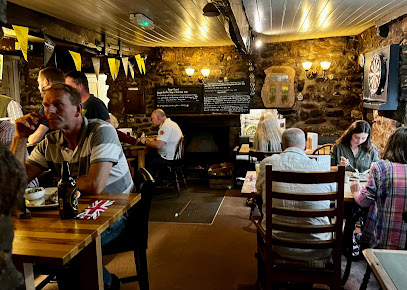
The King's Arms Hotel
Historic Yorkshire Dales pub and hotel famed for warm hospitality, hearty local fare, and charming traditional rooms in Askrigg village.
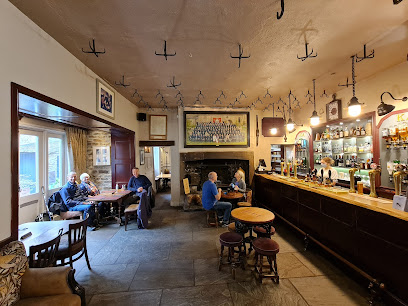
The Blue Lion Inn, Pub and Restaurant with Accommodation
A charming Yorkshire Dales country inn offering refined British cuisine, cozy boutique rooms, and warm hospitality in East Witton’s picturesque village green.
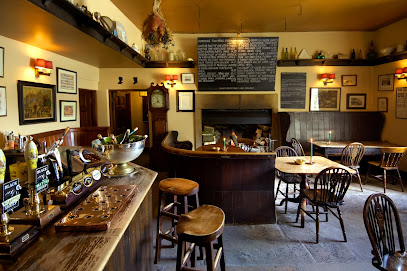
Farmers Arms
A beloved traditional pub in Muker offering hearty food, cozy charm, and a welcoming atmosphere in the heart of the Yorkshire Dales.
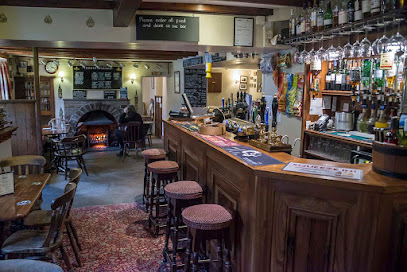
The Fox & Hounds Inn
Charming traditional pub and inn in Starbotton offering hearty Yorkshire fare, cozy rooms, and stunning Dales scenery.

The Crown Inn
A friendly, family-run pub in Askrigg offering hearty local food, fine ales, and a warm Yorkshire welcome in the heart of the Dales.
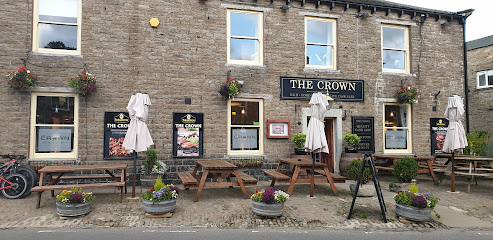
The George Inn
Traditional Yorkshire Dales pub with award-winning pies, cozy rooms, and warm hospitality nestled in the scenic village of Hubberholme.

Local Phrases about Yorkshire Dales National Park
-
- HelloEy up
[Aye up] - GoodbyeTa'ra
[Ta-ra] - YesAye
[Aye] - NoNay
[Nay] - Please/You're welcomeTa
[Ta] - Thank youCheers
[Cheers] - Excuse me/SorryMekin' pardon
[Mekin' pardon] - How are you?How's tha doin'?
[How's tha doin'?] - Fine. And you?Reet. An' tha?
[Reet. An' tha?] - Do you speak English?Does tha speak English?
[Does tha speak English?] - I don't understandAh divvent get tha
[Ah divvent get tha]
- HelloEy up
-
- I'd like to see the menu, pleaseLet's see t'bill, will tha?
[Let's see t'bill, will tha?] - I don't eat meatAh divvent eat meat
[Ah divvent eat meat] - Cheers!Cheers!
[Cheers!] - I would like to pay, pleaseAh'd like t'pay, will tha?
[Ah'd like t'pay, will tha?]
- I'd like to see the menu, pleaseLet's see t'bill, will tha?
-
- Help!Help!
[Help!] - Go away!Ger off!
[Ger off!] - Call the Police!Ring t'cops!
[Ring t'cops!] - Call a doctor!Ring t'doctor!
[Ring t'doctor!] - I'm lostAh'm lost
[Ah'm lost] - I'm illAh'm poorly
[Ah'm poorly]
- Help!Help!
-
- I'd like to buy...Ah'd like t'buy...
[Ah'd like t'buy...] - I'm just lookingAh'm just lookin'
[Ah'm just lookin'] - How much is it?How much is it?
[How much is it?] - That's too expensiveThat's too dear
[That's too dear] - Can you lower the price?Can tha drop t'price?
[Can tha drop t'price?]
- I'd like to buy...Ah'd like t'buy...
-
- What time is it?What's time?
[What's time?] - It's one o'clockIt's one o'clock
[It's one o'clock] - Half past (10)Half past ten
[Half past ten] - MorningMornin'
[Mornin'] - AfternoonAfternoon
[Afternoon] - EveningEvenin'
[Evenin'] - YesterdayYesterday
[Yesterday] - TodayToday
[Today] - TomorrowTomorrow
[Tomorrow] - 1One
[One] - 2Two
[Two] - 3Three
[Three] - 4Four
[Four] - 5Five
[Five] - 6Six
[Six] - 7Seven
[Seven] - 8Eight
[Eight] - 9Nine
[Nine] - 10Ten
[Ten]
- What time is it?What's time?
-
- Where's a/the...?Where's t'...
[Where's t'...] - What's the address?What's t'address?
[What's t'address?] - Can you show me (on the map)?Can tha show me (on t'map)?
[Can tha show me (on t'map)?] - When's the next (bus)?When's t'next (bus)?
[When's t'next (bus)?] - A ticket (to ....)A ticket (to ....)
[A ticket (to ....)]
- Where's a/the...?Where's t'...
History of Yorkshire Dales National Park
-
The Yorkshire Dales have a rich history dating back to prehistoric times. Evidence of ancient settlements, such as the Bronze Age stone circles, can be found in the region. The Romans also left their mark on the Dales, with remnants of roads, forts, and other structures still visible today. The Roman road known as the Cam High Road is a notable example, connecting Ingleton to Bainbridge.
-
During the medieval period, the Yorkshire Dales were home to several significant monastic sites. Fountains Abbey, a UNESCO World Heritage site, stands as one of the best-preserved Cistercian monasteries in England. The ruins of Jervaulx Abbey and Bolton Priory also offer a glimpse into the religious and cultural life of the region during the Middle Ages.
-
The Industrial Revolution brought significant changes to the Yorkshire Dales, particularly with the advent of lead mining. The region became a hub for lead production, with extensive mining operations in places like Swaledale and Wharfedale. The remnants of old mine shafts, smelting mills, and miners' cottages tell the story of this transformative period in the Dales' history.
-
The Victorian era saw the expansion of the railway network, which had a profound impact on the Yorkshire Dales. The construction of the Settle-Carlisle Railway, with its iconic Ribblehead Viaduct, opened up the region to increased trade and tourism. This period also saw the growth of market towns like Hawes and Skipton, which thrived due to improved connectivity.
-
The Yorkshire Dales National Park was officially designated in 1954 to protect the natural beauty, wildlife, and cultural heritage of the area. The park covers over 2,000 square kilometers and includes a diverse range of landscapes, from rolling hills and deep valleys to limestone pavements and rugged moorlands. The establishment of the park has played a crucial role in preserving the unique character and environment of the Dales for future generations.
-
The Yorkshire Dales is rich in cultural traditions, many of which are celebrated through local festivals and events. The Muker Show, a traditional agricultural show held in Swaledale, showcases the region's farming heritage. The Grassington Festival offers a vibrant mix of music, theatre, and arts, reflecting the creative spirit of the Dales' communities. These events provide an opportunity to experience the local culture and connect with the area's long-standing traditions.
Yorkshire Dales National Park Essentials
-
Yorkshire Dales National Park is located in Northern England. The nearest major airports are Leeds Bradford Airport, Manchester Airport, and Newcastle Airport. From these airports, you can take a train or bus to nearby towns such as Skipton, Settle, or Richmond, which serve as gateways to the park. If you prefer driving, car rentals are available at the airports, and the park is well-signposted from major motorways like the M6, A1(M), and M65.
-
The Yorkshire Dales can be explored by car, bicycle, or public transport. Local buses connect key towns and villages within the park, including Grassington, Hawes, and Malham. The Settle-Carlisle Railway offers a scenic route through the Dales with stops at charming villages. For those preferring more flexibility, renting a car provides the freedom to explore remote areas at your own pace. Additionally, numerous walking and cycling paths crisscross the park, ideal for outdoor enthusiasts.
-
The official currency is the British Pound Sterling (GBP). Credit and debit cards are widely accepted in hotels, restaurants, and shops within the park. ATMs are available in larger towns like Skipton and Richmond. However, it's advisable to carry some cash, especially when visiting smaller villages and remote areas where card facilities may not be available.
-
Yorkshire Dales National Park is generally a safe destination for tourists. Standard precautions should be taken, such as not leaving valuables in plain sight in your vehicle and being cautious with your belongings in crowded areas. There are no specific high-crime areas targeting tourists, but it is always best to stay vigilant and aware of your surroundings, especially in more isolated areas.
-
In case of emergency, dial 999 for immediate assistance. There are local police stations and medical facilities in towns like Skipton and Richmond. It is recommended to have travel insurance that covers medical emergencies. For minor health issues, pharmacies are available in larger towns where over-the-counter medications can be purchased.
-
Fashion: Do dress in layers and wear comfortable walking shoes, as weather can be unpredictable. Don't wear inappropriate clothing in religious or historical sites. Religion: Do respect local customs and traditions. Many churches and abbeys in the area may request modest dress. Public Transport: Do be respectful and courteous to drivers and fellow passengers. Don't play loud music or eat on the bus. Greetings: Do greet locals with a friendly 'hello' or 'good morning'. Don't be overly familiar with strangers. Eating & Drinking: Do try local specialties such as Wensleydale cheese and Yorkshire pudding. Don't refuse hospitality, it can be considered impolite.
-
To experience Yorkshire Dales National Park like a local, visit traditional markets in towns like Hawes and Settle where you can buy local produce and crafts. Engage with locals who are often friendly and proud to share knowledge about the region's history and culture. Don't miss visiting iconic landmarks such as Malham Cove, Aysgarth Falls, and Ribblehead Viaduct. For a unique experience, take part in local events and festivals which celebrate the rich heritage of the Dales.
Nearby Cities to Yorkshire Dales National Park
-
Things To Do in Durham
-
Things To Do in York
-
Things To Do in Manchester
-
Things To Do in Newcastle upon Tyne
-
Things To Do in Liverpool
-
Things To Do in Sheffield
-
Things To Do in Chester
-
Things To Do in Ramsey
-
Things To Do in Laxey
-
Things To Do in Onchan
-
Things To Do in Douglas
-
Things To Do in Kirk Michael
-
Things To Do in Ballasalla
-
Things To Do in Castletown
-
Things To Do in Peel











